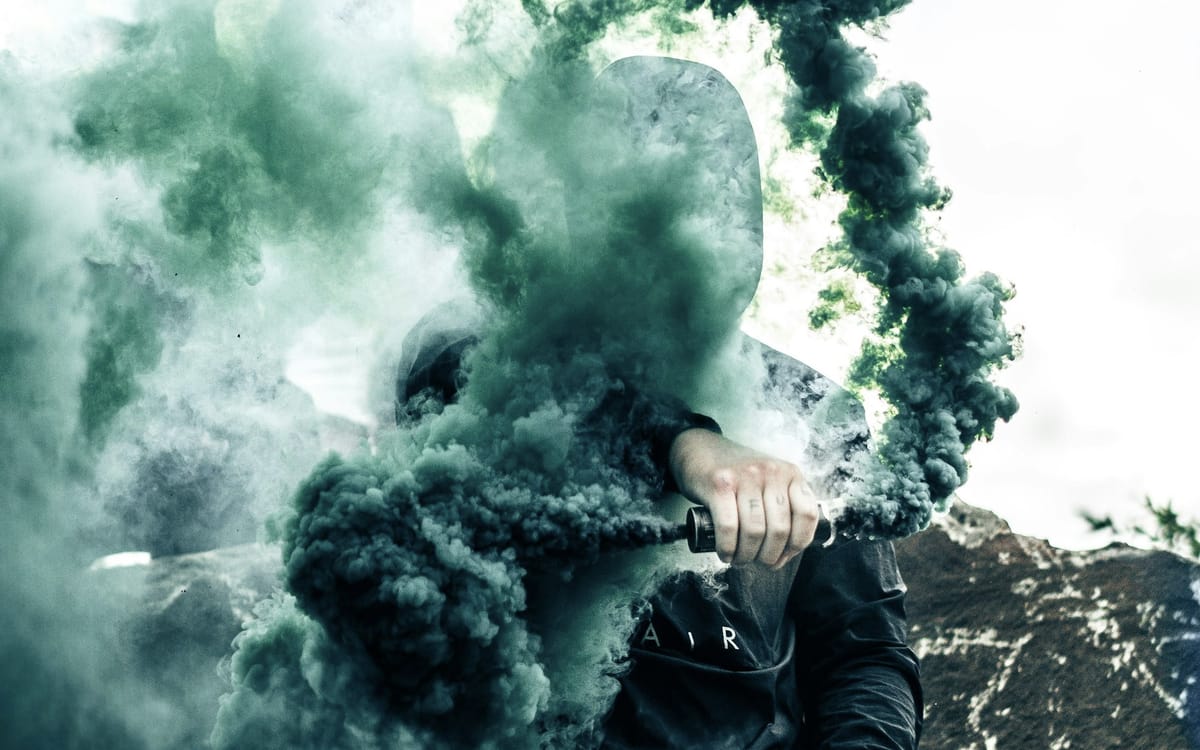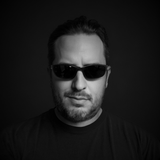A Return to Anonymity
Pattrn itself is not the problem. It’s social media as a whole that needs to go. Every network that has come and gone in the last two decades has promised to revolutionize the way we connect with people. Instead, they’ve degraded an instinct that is vital to our survival as a species.

by Javi Valdez, CEO/Founder Signal Bleed, LLC.
I ran into an old friend earlier this week, and after we’d caught up, I asked him for his email address so we could stay in touch. When he told me it was thunderdog79@rocketmill.com (not his actual address), I thought it was some kind of joke. I pressed him on why he wasn’t using his full name with a reputable email provider, and he replied with a question: when did it become uncool to remain anonymous?
As it happened, I was on my way to the third day of talks at State of the Network '14 conference in Umbra, and when the panel opened the floor to questions in the afternoon, I got in line for my turn at the microphone. You can view the uncut video of the responses on my channel, but I’ve summarized them here so you can have something to quote when you repost this to your social network of choice.
When did it become uncool to remain anonymous?
Patrick Delmar, Professor, Berkeley, College of Social Sciences
“Don’t take this as my final word on the subject, but I wonder if the phasing out of anonymity has to do with the rise in self-promotion. Our culture is one of the few in the world that values and encourages individuality, and in the last decade, we’ve taken that to an extreme. Anonymity is about putting on a mask, whereas the average American wants to be seen. We’re a look-at-me and look-what-I’ve-done society, and masking any of our individuality or achievements with an assumed persona is counterintuitive to our desire for fame.”
Grace O’Connor, VP of UX Design, Pattrn
“There are many reasons why anonymity doesn’t work in the present social networking landscape, including safety, transparency, and accountability. But every time we do a study, we get the same response from our users: they want to connect with other people, not personas. They don’t remember what they used to call their best friend in second grade, but they can look up the yearbook online, find that friend’s real name, and then find them in the Pattrn. Our mission statement has always been about organizing the world’s relationships and ensuring those avenues of communication are always accessible.”
Tanzy, I.C.E-1
“Anonymity is uncool because Pattrn tells us it’s uncool. The simple truth is that there is very little money to be made off Princess Butterfly and a whole lot to be made off of Grace O’Connor, 48, wife and mother of two children, and devout Catholic.”
(Grace interrupts at this point and asks Tanzy to stay on topic.)
“Can you name the last website or net hop you visited that didn’t require a Pattrn login to access it? There are countless free services out there that depend solely on the metadata collected as part of the login process for revenue. Whether it’s transparent or not, we’ve become accustomed to handing over so much of our personal data that we don’t even hesitate to give our real names anymore.”
Lucas Cotton, Founder, The MESH Project
“I would like to point out that I could monetize Princess Butterfly, but I see no reason to make the United States government any richer than it currently is.”
(See related story: Citigroup VP’s Son Sentenced for Data Tampering)
“Tanzy, I admire your enthusiasm, but Pattrn itself is not the problem. It’s social media as a whole that needs to go. Every network that has come and gone in the last two decades has promised to revolutionize the way we connect with people. Instead, they’ve degraded an instinct that is vital to our survival as a species. This idea that Pattrn protects its users by requiring real names and doing background checks so you ‘know who you’re talking to’ is just insane. Social interaction amongst humans has gone without a middleman for millions of years. Why now do we require a third party just to share vacation photos with a friend? The MESH Project is going to change all of that.”
Les Thompson, Contributor, HowItDo
“Who said anonymity was ever cool in the first place? [Reading from phone:] ‘The most important kind of freedom is to be what you really are. You trade in your reality for a role. You trade in your sense for an act. You give up your ability to feel, and in exchange, put on a mask.’ Jim Morrison said that, long before any of these social networks even existed.”
(There is a smattering of applause.)
“I tend to agree with him. We don’t all have to be fame whores or junior reporters, but we can be ourselves. Why would you want to hide that from other people?”
Tanzy
“He doesn’t want to hide himself from other people. He wants to hide from the Pattrn.”
Lucas Cotton
“And the government.”
Patrick Delmar
“You may both have a point. To a certain extent, anonymity is being bred out of us. Every interaction we have with government agencies requires proof of identity. Companies that collect personal data are merely tapping into a learned behavior: that is, exchanging our identity for goods and services. As Tanzy pointed out, we’re so used to it now.”
Grace O’Connor
“I’d like to go back to Mr. Cotton’s comments for a moment, regarding this instinctual skill we’re supposedly killing off. I think you’re forgetting how much the world has changed in the last few decades. Technology has irrevocably altered the way we interact with people. Your so-called skill at sizing people up counts for nothing in virtual reality, in a chat room, or a multiplayer game. Not everyone is equipped to protect themselves in this new environment, and that’s why Pattrn is so important. We civilize the digital wilderness. We don’t charge for this, we don’t ask for anything in return; we just ask that you be yourself.”
Lucas Cotton
“In the MESH, who you are won’t matter, because there won’t be anyone to stand between you and the person you want to connect with. Want to tell them your life story? Want to keep your name, race, sex, and creed private? That’s your choice. We can’t see the interaction, and we can’t regulate it.”
Tanzy
“To answer your question, Javi, anonymity became uncool when it became unprofitable. Just look at these two coming up with explanations that just happen to serve their particular business models. Social networking turns you into a commodity, and while you have a name, I guarantee that in their databases, where you’re reduced to simple meta, you are nothing but a number. Get a mask. Wear it proudly.”
Signal Summary
While I enjoyed listening to some of the most influential voices in social media argue amongst themselves about the merits of anonymity, the entire experience was ultimately unfulfilling. It turns out that the email address my friend had given me was either fake or written down incorrectly, so I couldn’t send him the video or the summary I put together for him. To make matters worse, there’s no trace of him on any of the popular social networks.
I’m posting this in the hope that my friend looks me up and decides to get in touch. If he doesn’t, I’ll take it as a lesson that the true power of anonymity is that it lets you control how much information you share with other people.
And that sometimes, you’d rather not share anything at all.
But if you already have a Pattrn account, there’s no taking back the information that’s already out there, even if it's just your name.




